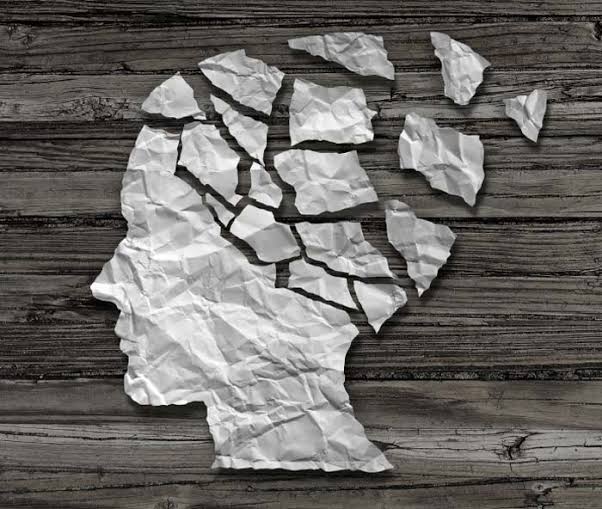W.B.C.S. Examination Notes On – AMNESIA – Psychology Notes.
Psychology has seen an exceptional increment in the number of aspirants choosing for the same as their optionals subject for W.B.C.S. mains exam. No doubt it is an extremely interesting optional subject. By the day’s end, no optional subject is pretty much scoring. It is one’s devotion and duty which decides the execution.The Psychology optional, broadly favored as an optional subject for W.B.C.S. Mains examination. The typical reason behind the same incorporate it is a simple subject, it is a safe subject, it is considered a scoring subject and so on. Read on to know which is the best book for Psychology W.B.C.S. and How To Prepare Psychology Optional For WBCS Main Exam – Psychology Syllabus.Amnesia is the general term for a condition in which memory (either stored memories or the process of committing something to memory) is disturbed or lost, to a greater extent than simple everyday forgetting or absent-mindedness.Continue Reading W.B.C.S. Examination Notes On – AMNESIA – Psychology Notes.
Amnesia may result either from organic or neurological causes (damage to the brain through physical injury, neurological disease or the use of certain drugs) or from functional or psychogenic causes (psychological factors, such as mental disorder, post-traumatic stress or psychological defence mechanisms).
Infantile amnesia is the label given to the common inability of adults to remember the earliest years of their childhood, typically from birth until around four years old.
Various hypotheses have been put forward, including Sigmund Freud’s theory of the repression of memories of traumatic events that (according to Freud) necessarily occur in the psychosexual development of every child; the lack of neurological development of the infant brain necessary for the creation of long-term memories, particularly the hippocampus and prefrontal cortex which do not develop into mature structures until the age of three or four years; the incomplete development of language in infants so that autobiographical memories are not encoded in a manner that their language-based adult selves can interpret correctly; etc.
There are two main types of amnesia: anterograde amnesia(where the ability to memorize new things is impaired or lost because data does not transfer successfully from the conscious short-term memory into permanent long-term memory); and retrograde amnesia (where a person’s pre-existing memories are lost to conscious recollection, beyond an ordinary degree of forgetfulness, even though they may be able to memorize new things that occur after the onset of amnesia). Anterograde amnesia is the more common of the two. Sometimes both these types of amnesia may occur together, sometimes called total or global amnesia. Another type of amnesia is post-traumatic amnesia, a state of confusion and memory loss that occurs after a traumatic brain injury. Amnesia which occurs due to psychological factors is usually referred to as psychogenic amnesia.
Many kinds of amnesia are associated with damage to the hippocampus and related areas of the brain which are used in the encoding, storage and retrieval of memories. If there is a blockage in the pathways along which information travels during the processes of memory encoding or retrieval, or if whole regions of the brain are missing or damaged, then the brain may not be able to form new memories or retrieve some old ones.Also Read , Psychology Notes On – Metamemory – For W.B.C.S. Examination.
The usual causes of amnesia are lesions to the brain from an accident or neurological disease, but intense stress, alcohol abuse, loss of oxygen or blood flow to the brain, etc, can all also cause amnesia, as sometimes can treatments such as electro-convulsive therapy. For example, intense stress can cause the sympathetic nervous system to activate the adrenal glands, which then secrete certain hormones into the bloodstream which can significantly affect the plasticity of the brain’s neurons (i.e. their ability to change and strengthen connections), especially those in the hippocampus.
In most cases, amnesia is a temporary condition, lasting from a few seconds to a few hours, but the duration can be longer depending on the severity of the disease or trauma, up to a few weeks or even months. Although it is very rare for anyone to experience total (permanent) amnesia, one well-known case of long-lasting and acute total (retrograde and anterograde) amnesia, perhaps the worst case of amnesia ever recorded, is that of the British musician Clive Wearing, who suffered damage to his brain as a result of an encephalitis virus in 1985. Because the damage was to an area of his brain required to transfer memories from working memory to long-term memory, he is completely unable to form lasting new long-term memories, and his memory is therefore limited to a short-term memory of between 7 and 30 seconds, to the extent that he will greet his wife like a long-lost friend even if she only left to go into the kitchen 30 seconds ago. However, Wearing still recalls how to play the piano and conduct a choir, despite having no recollection of having received a musical education, because his procedural memory was not damaged by the virus.
In general, memories of habits (procedural memory) are usually better preserved than memories of facts and events (declarative memory), and the most distant long-term memories, such as those of childhood, are more likely to be preserved. When memories return, older memories are usually recalled first, and then more recent memories, until almost all memory is recovered.
Our own publications are available at our webstore (click here).
For Guidance of WBCS (Exe.) Etc. Preliminary , Main Exam and Interview, Study Mat, Mock Test, Guided by WBCS Gr A Officers , Online and Classroom, Call 9674493673, or mail us at – mailus@wbcsmadeeasy.in
Visit our you tube channel WBCSMadeEasy™ You tube Channel
Please subscribe here to get all future updates on this post/page/category/website



 Toll Free 1800 572 9282
Toll Free 1800 572 9282  mailus@wbcsmadeeasy.in
mailus@wbcsmadeeasy.in


















































































































